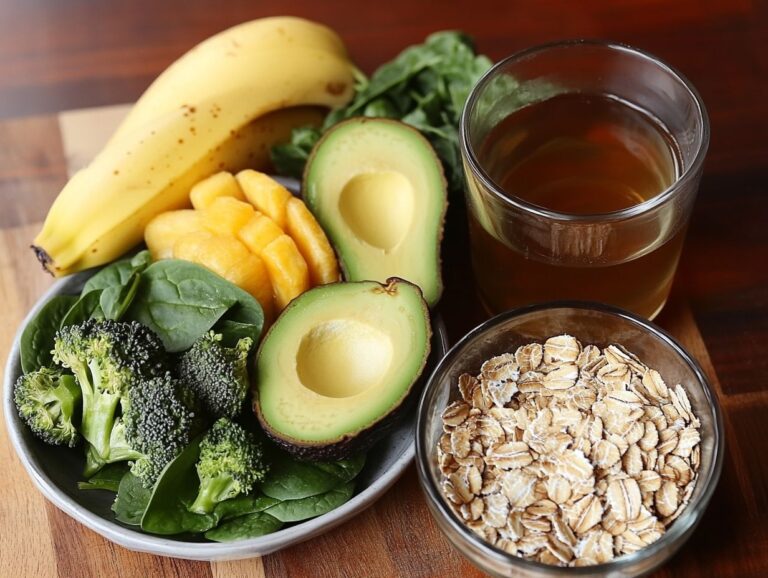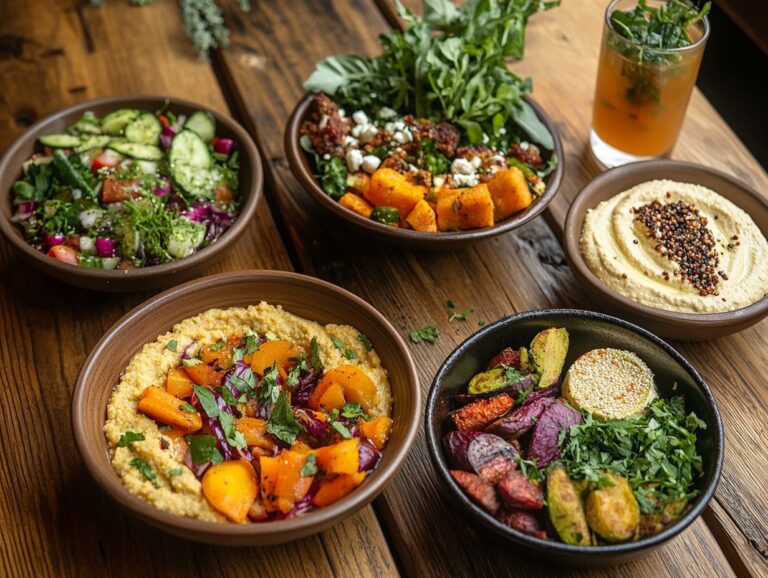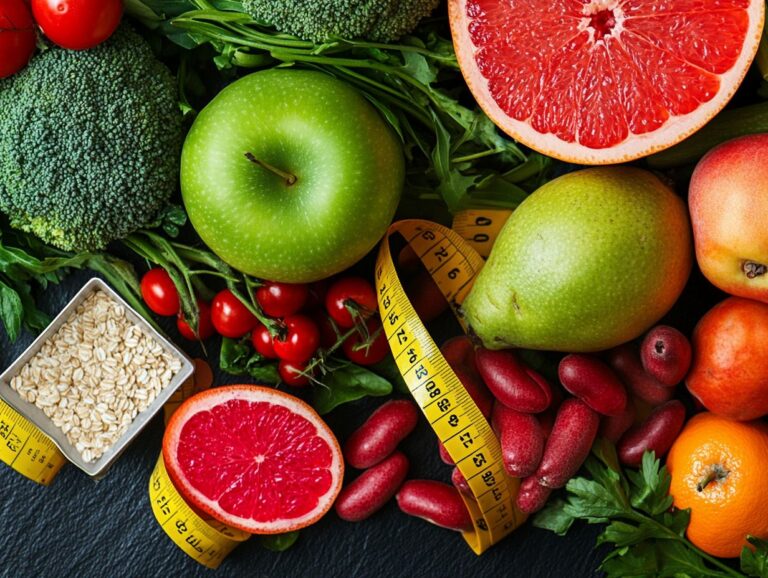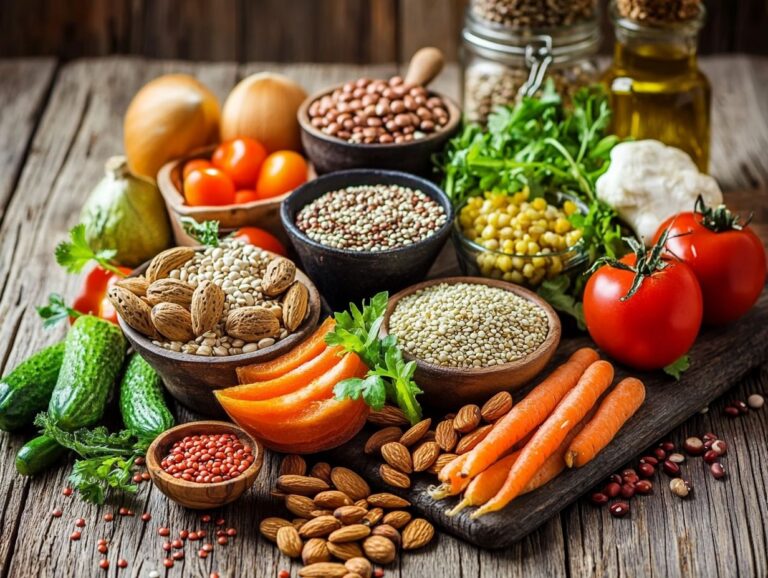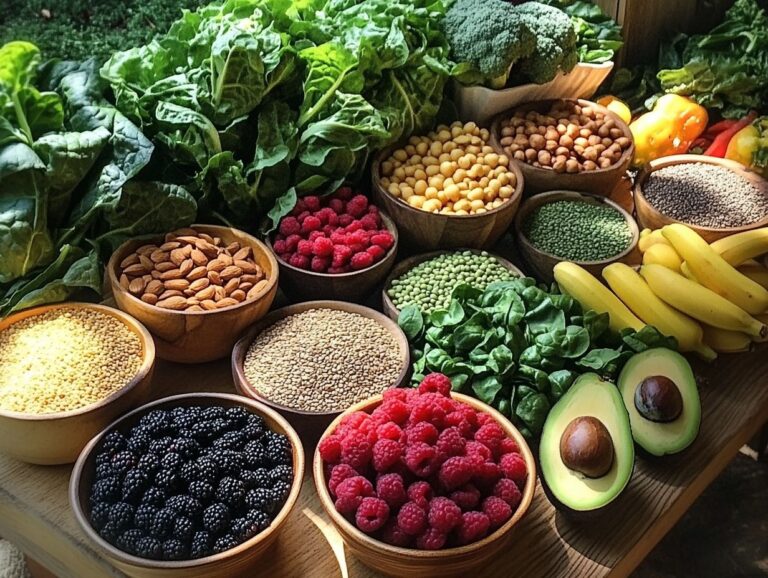Adopting a vegan diet can be a rewarding and healthy choice; however, some individuals may experience unexpected tiredness and fatigue. This article explores the potential reasons for this low energy, including nutrient deficiencies, dietary restrictions, and the body’s adjustment period. To restore energy levels, it is essential to maintain a varied diet and ensure adequate intake of key nutrients such as protein, iron, and vitamin B12. By taking the appropriate steps, it is possible to thrive on a vegan diet while enjoying vibrant energy!
What is a Vegan Diet?
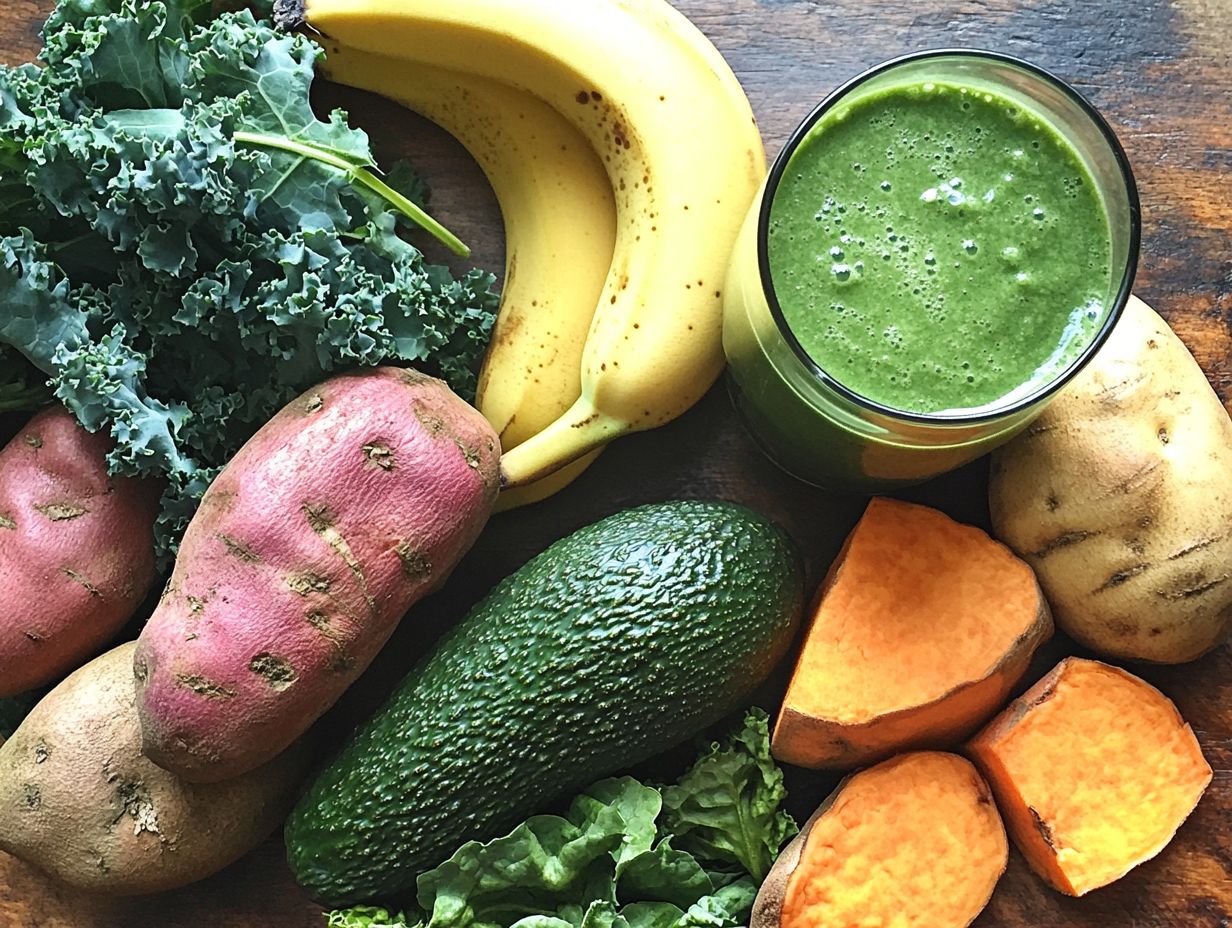
A vegan diet is a plant-based diet that excludes all animal products and emphasizes whole foods, fruits, vegetables, grains, nuts, and seeds to promote health and sustainability.
This dietary choice aims to enhance nutrient density, ensuring individuals receive a diverse array of vitamins and minerals essential for energy production and overall well-being.
Many people adopt this lifestyle for ethical, environmental, or health reasons; however, it is crucial to understand its nutritional content to prevent potential nutrient deficiencies and low energy.
Nutrient deficiencies in vitamin B12, iron, and omega-3 fatty acids can occur without careful meal planning.
Why Do Some People Feel Tired on a Vegan Diet?
Tiredness and fatigue are common complaints among individuals transitioning to a vegan diet, often resulting from nutrient deficiencies that can impact energy levels.
The most prevalent deficiencies are those of iron-rich foods and vitamin B12, both of which are essential for energy production and the prevention of chronic fatigue.
These deficiencies typically arise from dietary adjustments that may restrict the necessary nutrients the body requires for daily activities and recovery from workouts. This highlights the importance of balanced meals and careful meal planning to ensure adequate nutrient intake.
Are They Getting Enough Nutrients?
One of the primary reasons individuals may feel tired on a vegan diet is due to nutrient deficiencies, particularly in vitamin B12, iron, and protein. Following a plant-based diet can make it challenging to obtain sufficient amounts of these nutrients, potentially leading to a lack of energy and other health problems.
To mitigate this, it is essential to ensure that vegan meals contain balanced proportions of complex carbohydrates, healthy fats, and protein to maintain energy levels and support daily activities.
Additionally, individuals on a vegan diet should include reliable sources of vitamin B12, as this vitamin is predominantly found in animal products. Fortified plant milk alternatives, nutritional yeast, and supplements are effective ways to ensure adequate B12 intake and prevent deficiencies.
Iron is another crucial nutrient that can be difficult to obtain on a vegan diet. Good sources of iron include a variety of plant-based foods:
- Lentils
- Chickpeas
- Quinoa
- Dark leafy greens such as spinach and kale
To enhance iron absorption, these foods should be paired with items high in vitamin C, such as citrus fruits or bell peppers.
- Lentils
- Chickpeas
- Quinoa
- Dark leafy greens such as spinach and kale
To enhance iron absorption, these foods should be paired with items high in vitamin C, such as citrus fruits or bell peppers.
Is Their Diet Too Restrictive?
One challenge associated with a vegan diet is its restrictive nature, which can lead to insufficient calorie intake and reduced nutrient absorption. While a vegan diet can be nutrient-rich, an over-reliance on processed plant foods may result in nutrient deficiencies and low energy levels, affecting daily activities and overall health.
Many individuals may not realize that such a diet can foster unhealthy eating habits and a lack of essential nutrients, including vitamin B12, iron, and omega-3 fatty acids. To address this issue, it is crucial to include a diverse range of whole grains, legumes, fruits, and vegetables in the diet.
Exploring new recipes and cooking methods can make whole foods more appealing. Simple strategies, such as meal prepping, reading product ingredient lists, and opting for fresh fruits and vegetables over packaged or frozen options, can significantly contribute to a balanced vegan diet, enabling individuals to perform at their best, support recovery nutrition, and maintain energy levels.
Is Their Body Adjusting to the Diet?
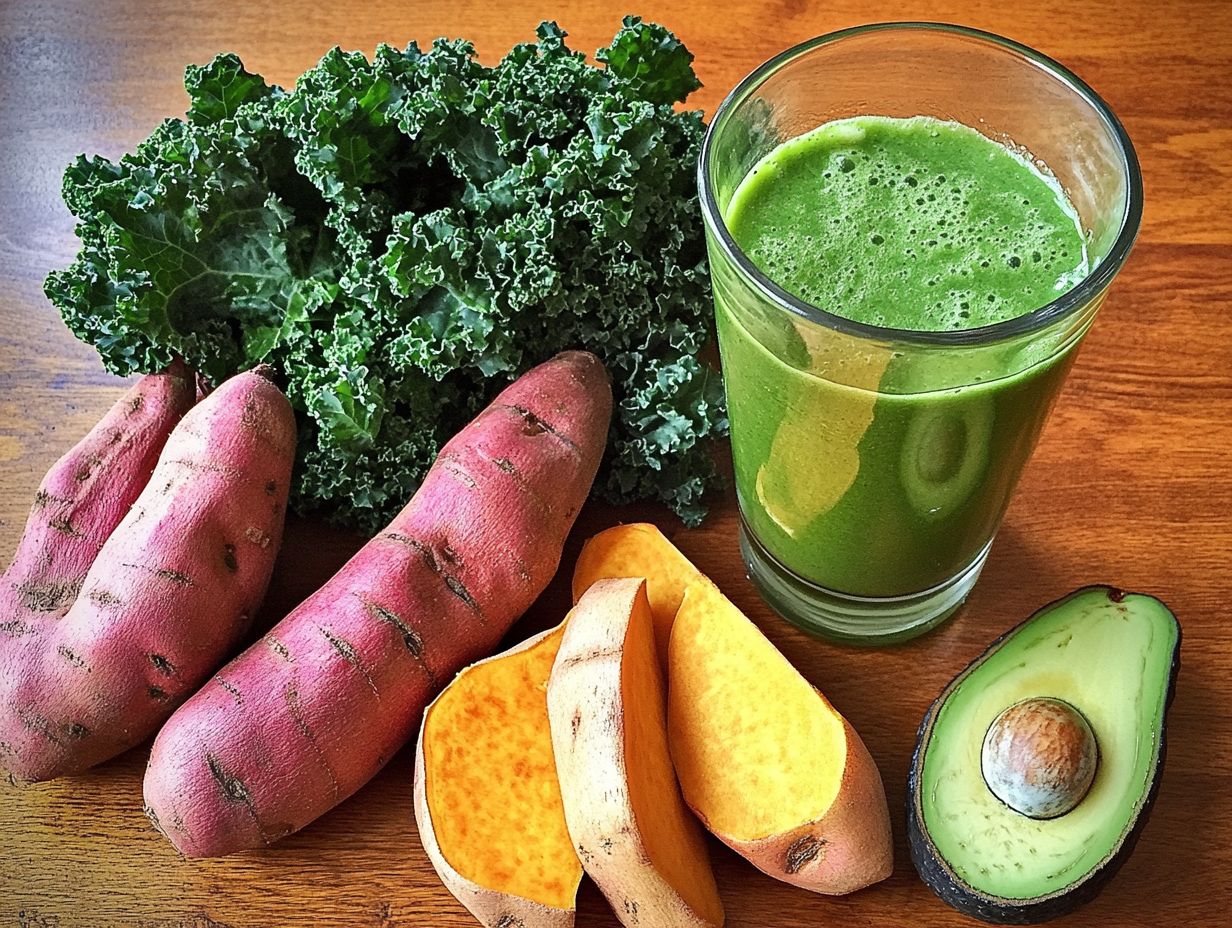
When individuals transition to a vegan diet, their bodies may undergo significant changes that can temporarily impact energy production and overall health.
As the body adjusts to new sources of nutrients, this transition may result in symptoms such as tiredness or chronic fatigue, especially if there are changes in sleep quality, adrenal health, or basal metabolic rate. Understanding these adjustments can assist in managing energy levels during this period.
If adopting a plant-based diet leads to low energy in the short term, it is likely due to the body’s physiological adaptation and altered metabolic processes, which may involve changes in digestion and nutrient absorption.
Many nutrients that are typically abundant in animal products, such as vitamin B12, iron, and omega-3 fatty acids, may be less plentiful in plant foods. Therefore, it is crucial to plan meals carefully to maintain energy levels and support hormonal balance. Whole foods like quinoa, legumes, nuts, and leafy greens should be included in one’s diet.
Additionally, staying hydrated, incorporating nutrient-rich snacks into meals, engaging in light exercise, and practicing good sleep hygiene can all help increase energy and facilitate recovery during this dietary transition. Monitoring thyroid hormones and adrenal glands can also be beneficial in managing energy levels.
How Can You Restore Your Energy on a Vegan Diet?
Restoring energy levels on a vegan diet necessitates making conscious choices to incorporate a variety of whole foods and plant-based protein sources, along with ensuring adequate intake of iron and vitamin B12.
By consuming nutritionally rich foods and including dietary supplements when necessary, individuals can enhance their energy production, support recovery from workouts, and alleviate feelings of tiredness and fatigue.
Achieving this requires not only careful meal planning but also a commitment to understanding one’s own caloric needs and the nutritional content of food. It is also important to consider dietary guidelines and monitor through regular blood tests to ensure optimal nutrient levels.
1. Eat a Variety of Whole Foods
A balanced diet consisting of whole foods is crucial for boosting energy levels and ensuring a nutrient-rich intake, particularly for those following a vegan lifestyle. It is also important to monitor stress management and sleep deprivation which can affect energy levels.
Foods such as leafy greens, berries, quinoa, legumes, and healthy fats from avocados and nuts should be integral components of a plant-based diet. These foods not only enhance energy levels but also provide essential nutrients like iron, calcium, and omega-3 fatty acids.
To effortlessly incorporate these whole foods into your meals, and ensure they are nutrient-rich and support proper nutrient absorption, consider preparing:
- A colorful salad with a variety of mixed greens and vegetables for lunch,
- A vegetable stir-fry served with brown rice or whole grain pasta for dinner.
For breakfast, a smoothie made with spinach, banana, and flaxseeds can be a refreshing and energizing option, making it easy and enjoyable to achieve a balanced diet rich in whole foods.
2. Incorporate Plant-Based Sources of Protein
Plant-Based Sources of Protein: Plant-based sources of protein play a vital role in a vegan diet, helping to maintain energy levels and support overall health. High-protein foods such as legumes, lentils, tofu, and quinoa are beneficial for ensuring adequate protein intake, energy production, and recovery nutrition.
A proper supply of protein can help reduce fatigue and support physical activity. By incorporating a variety of these foods into daily meals, individuals can obtain essential amino acids that are crucial for muscle repair and growth, supporting overall physical activity and protein intake.
For example, chickpeas and black beans can be easily added to salads or transformed into dips. Nuts and seeds, such as almonds and chia seeds, can be included in snacks or breakfast to provide a significant protein boost.
To maximize health benefits, whole grains should also be included in the diet, as they provide complementary proteins that work together to create a complete protein profile, promoting sustained energy throughout the day and aiding in workout recovery.
3. Ensure Adequate Iron Intake
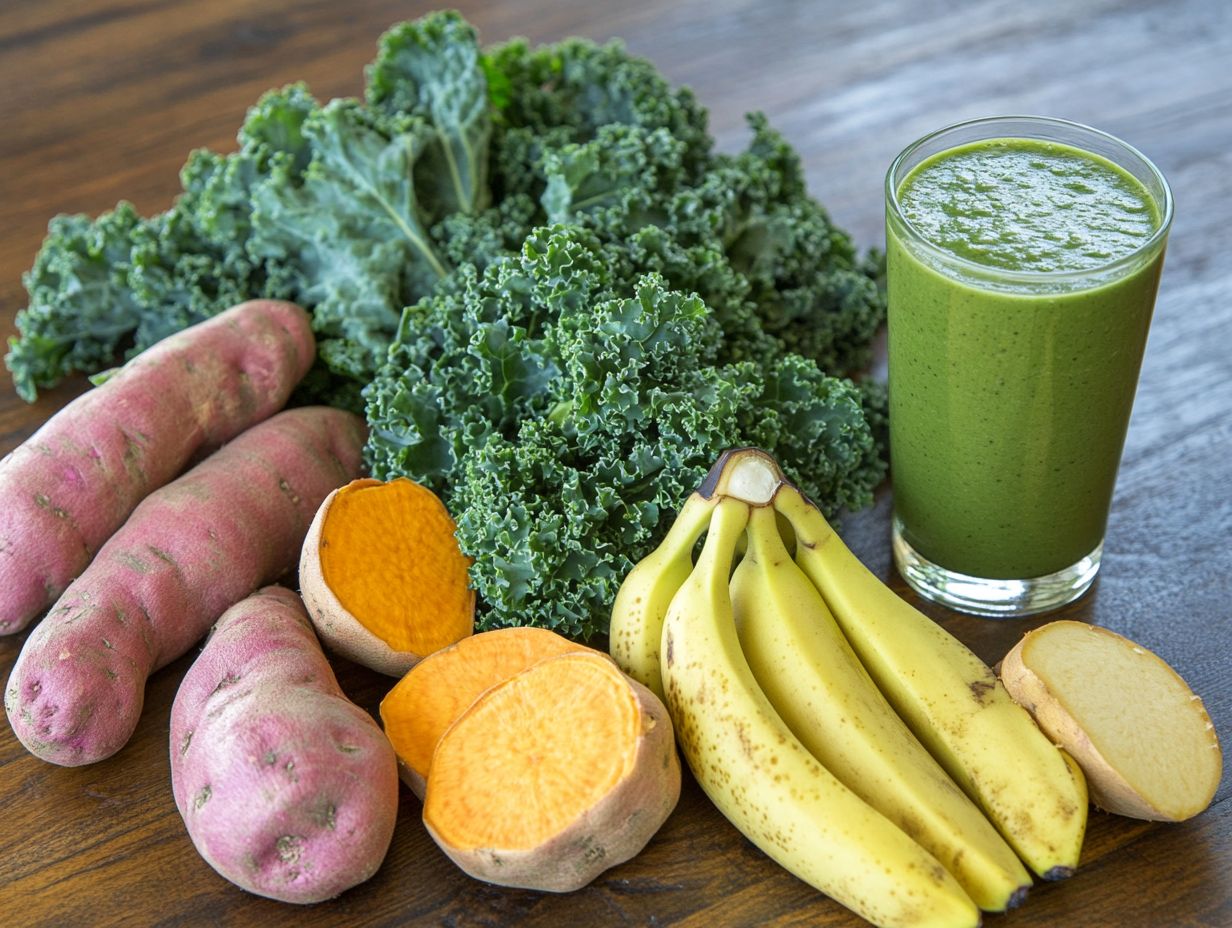
Iron intake is essential for maintaining energy levels and preventing fatigue, particularly for individuals following a vegan diet. To support energy production and reduce the risk of iron deficiency, it is important to incorporate iron-rich foods such as lentils, chickpeas, and dark leafy greens into a significant portion of the diet. Including green tea can also aid in iron absorption.
Pairing these foods with sources of vitamin C can enhance iron absorption and contribute to overall health. Additionally, including items like quinoa, fortified cereals, and pumpkin seeds can significantly boost iron levels while offering other vital nutrients.
Vegans should be mindful that these foods contain non-heme iron, which is not absorbed as efficiently by the body as the heme iron found in animal products. To improve iron absorption, dietary strategies such as cooking with cast iron and avoiding calcium-rich foods during iron-rich meals can be beneficial.
4. Get Enough Vitamin B12
Vitamin B12 is essential for vegans because it helps maintain energy levels and prevents fatigue. Unlike other vitamins, Vitamin B12 is predominantly found in animal products, so individuals following a vegan diet must consume fortified foods or take dietary supplements to maintain optimal blood levels.
Adequate intake of Vitamin B12 is crucial in minimizing the effects of nutrient deficiencies and maintaining proper blood levels. A deficiency in Vitamin B12 among those on a plant-based diet can lead to permanent neurological damage and anemia, affecting energy levels.
Vegans should carefully select sources of B12, such as:
- Fortified plant-based milks
- Breakfast cereals
- Nutritional yeast
For those who cannot meet their B12 needs through diet alone, supplements may be necessary to prevent the adverse effects of low B12 intake, such as chronic fatigue and iron deficiency.
5. Consider Supplements
Using dietary supplements can be an effective way for vegans to address nutrient deficiencies and combat tiredness and fatigue, as they can help increase energy levels and recovery nutrition.
Key supplements, such as omega-3 fatty acids, vitamin B12, and iron, can help bridge the nutritional gaps created by a strictly plant-based diet. These supplements contribute to energy production, recovery nutrition, and overall well-being, making them beneficial for managing low energy and fatigue when integrated into daily routines, especially for those following a vegan lifestyle.
Vitamin B12 is essential for neurological function, red blood cell formation, and DNA synthesis. Omega-3 fatty acids derived from algae support heart and brain health. Additionally, iron is more easily absorbed from animal products, which may lead to nutrient deficiencies in individuals who rely solely on plant-based foods like vegans.
When approached intentionally and with proper research, supplementing one’s diet can enhance food choices and positively impact overall quality of life, allowing individuals to lead more vibrant lives while reducing the risk of malnutrition and related health issues.
What Are Some Other Tips for Maintaining Energy on a Vegan Diet?
Maintaining energy on a vegan diet involves more than just nutrition; it also encompasses hydration, sleep quality, and a well-structured exercise routine. Ensuring adequate protein intake and avoiding processed foods further contribute to maintaining nutrient-rich energy levels. These factors collectively contribute to overall well-being and help prevent unnecessary tiredness or fatigue.
Additionally, employing stress management techniques alongside a balanced diet that includes complex carbohydrates and whole foods can significantly enhance energy levels and physical performance.
1. Stay Hydrated
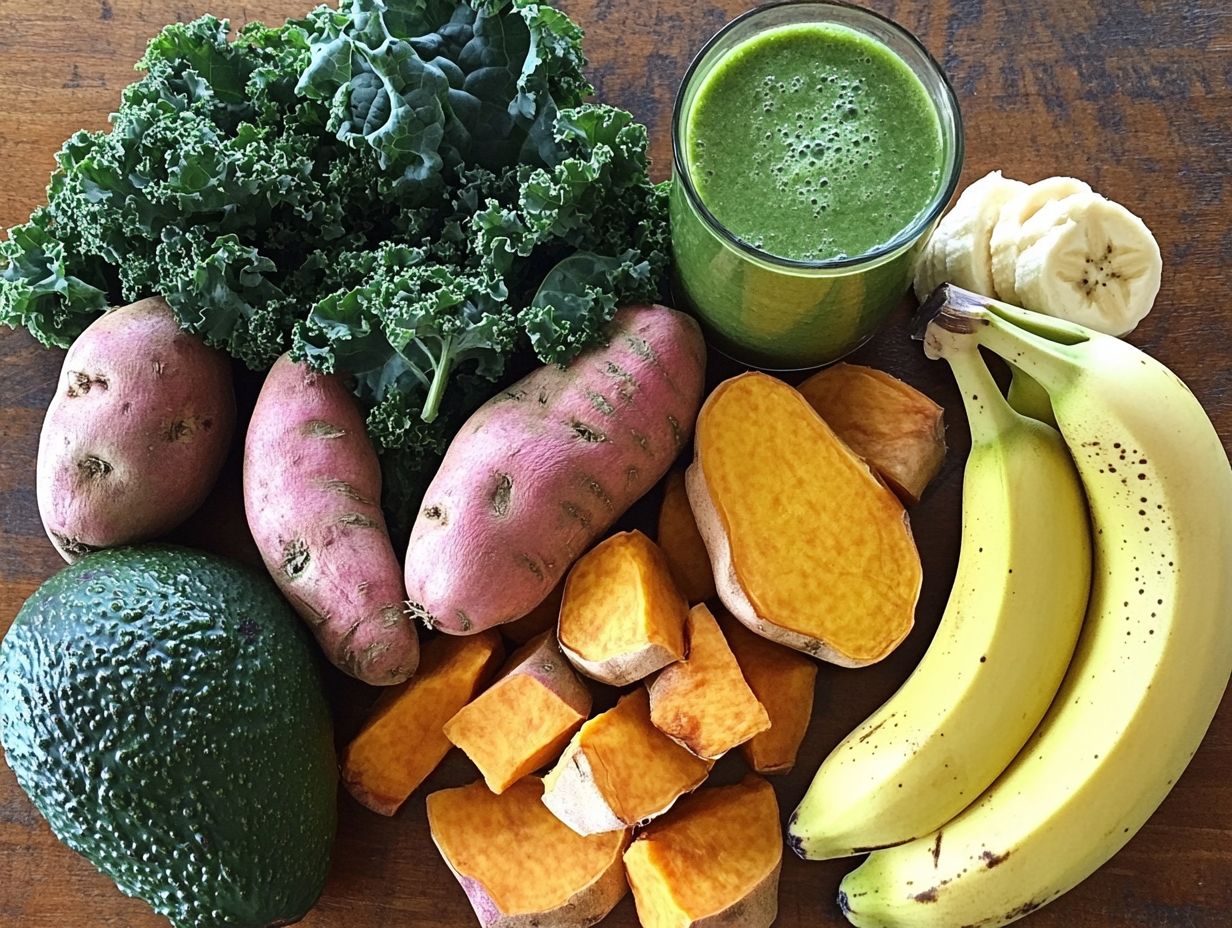
Hydration is a crucial factor for maintaining energy levels on a vegan diet, as it is essential for proper nutrient absorption and adrenal health. When the body is well-hydrated, energy-producing processes, digestion, and nutrient absorption function effectively, allowing individuals to feel less fatigued and better able to complete their daily activities.
Drinking water regularly throughout the day can help alleviate feelings of tiredness and fatigue. Proper hydration also aids in the transport of nutrients, ensuring that the benefits of a plant-based diet rich in vitamins and minerals are fully realized. Including herbal teas like green tea may also boost energy levels.
To maintain adequate hydration, individuals can consider the following tips:
- Carry a reusable water bottle
- Set reminders to drink
- Consume water-rich foods such as fruits and vegetables
- Include herbal teas
- Monitor the color of their urine as a way to assess hydration levels
With sufficient hydration, individuals often report improved endurance during workouts, enhanced mental clarity, and an overall sense of well-being.
2. Get Enough Sleep
Adequate quality sleep is essential for restoring energy levels and facilitating recovery, particularly for individuals following a vegan diet. Sleep quality directly impacts hormonal balance, energy production, and overall health, making it crucial for individuals to prioritize restorative practices to combat tiredness, fatigue, and sleep deprivation.
Establishing a regular sleep routine can significantly enhance energy levels during waking hours. Engaging in winding down activities, such as reading or meditation, can signal to the body that it is time for sleep, thereby improving sleep quality.
Inadequate sleep can hinder recovery processes, reduce cognitive function, and impair physical performance, making everyday tasks feel more challenging. Simple adjustments, like limiting screen time before bed or modifying the sleeping environment, can greatly improve sleep quality.
Prioritizing sleep not only boosts energy levels and promotes rest but also enhances mental clarity and overall productivity during waking hours.
3. Exercise Regularly
Regular exercise is essential for vegans, as it helps maintain energy levels by improving cardiovascular health, enhancing mood, and aiding workout recovery. Engaging in physical activity can boost energy production and reduce feelings of fatigue, making it easier to accomplish daily activities.
Tailoring a personal exercise routine to fit one’s lifestyle can lead to significant improvements in overall health and well-being.
Incorporating activities such as:
- brisk walking
- cycling
- swimming
- strength training
offers unique benefits. Additionally, including flexibility exercises like yoga or Pilates can enhance overall physical performance and promote mental clarity.
It’s important to assess individual fitness levels and energy goals, then set achievable steps to establish a balanced workout routine that promotes increased energy levels.
Implementing this system not only fosters motivation but also aids in sustaining energy throughout the day, facilitating the pursuit of a vegan lifestyle.
4. Listen to Your Body
Being mindful of how one’s body feels is essential for maintaining energy levels and successfully transitioning to a vegan diet. Recognizing signs of tiredness or fatigue enables individuals to adjust their nutrition and recovery practices, ensuring they have sustained energy throughout the day. This awareness can significantly enhance overall health and performance in daily activities.
It is important to frequently check in with oneself to assess physical and emotional feelings, as these cues can guide important dietary changes. For instance, if someone feels lethargic after eating, they may need to reevaluate the macronutrient balance, including protein intake and complex carbohydrates, of their meals.
Adequate amounts of protein, healthy fats, and a variety of carbohydrates are necessary for sustaining energy levels. Additionally, being aware of hydration levels and incorporating regular movement can further energize the body.
By cultivating this awareness, individuals can equip themselves with the tools needed to make choices that align with their energy requirements while addressing health concerns such as nutrient deficiencies and ensuring their basal metabolic rate is supported by their dietary guidelines.
